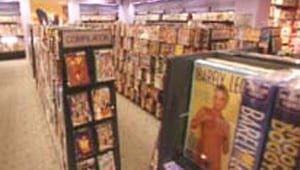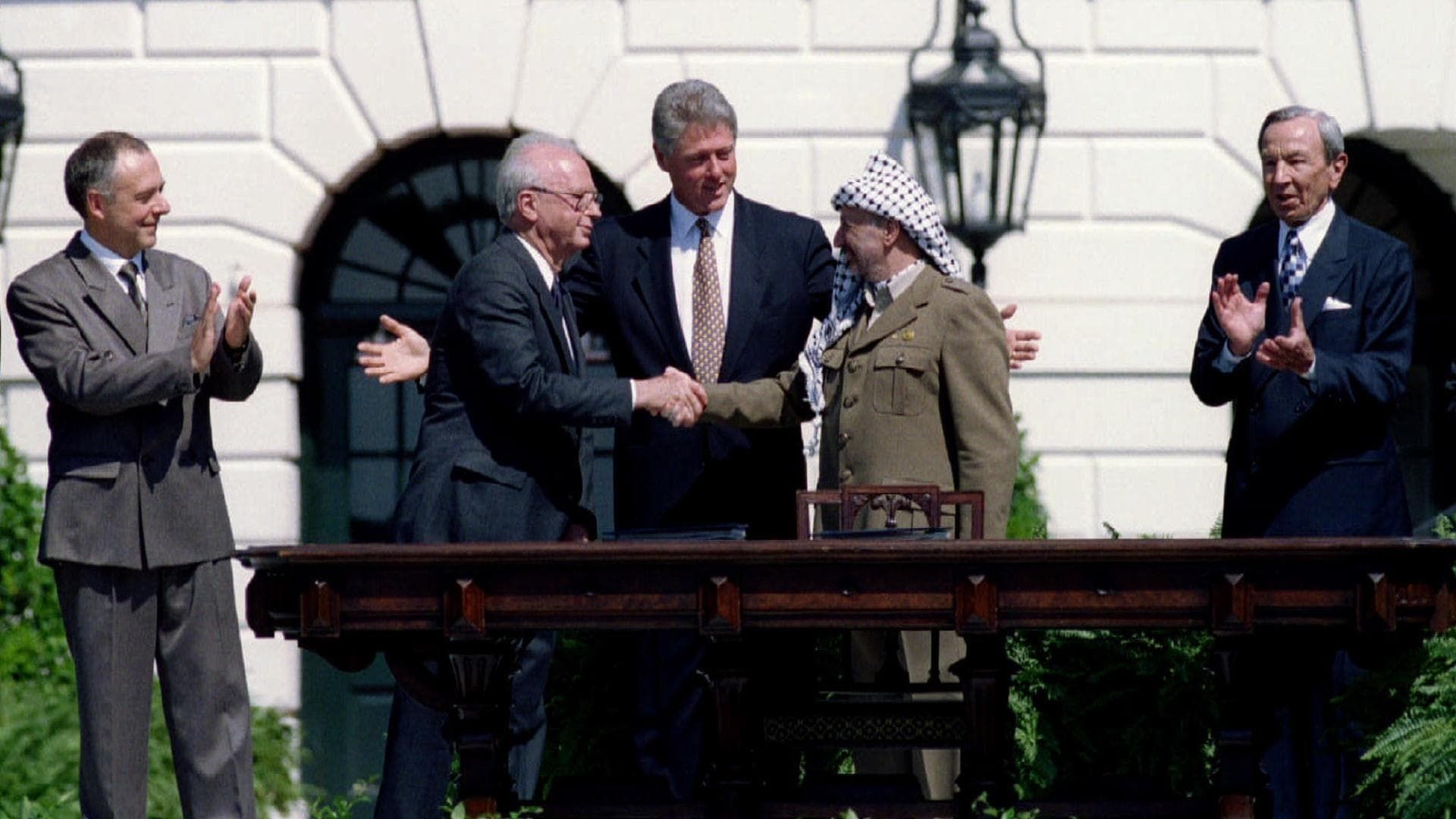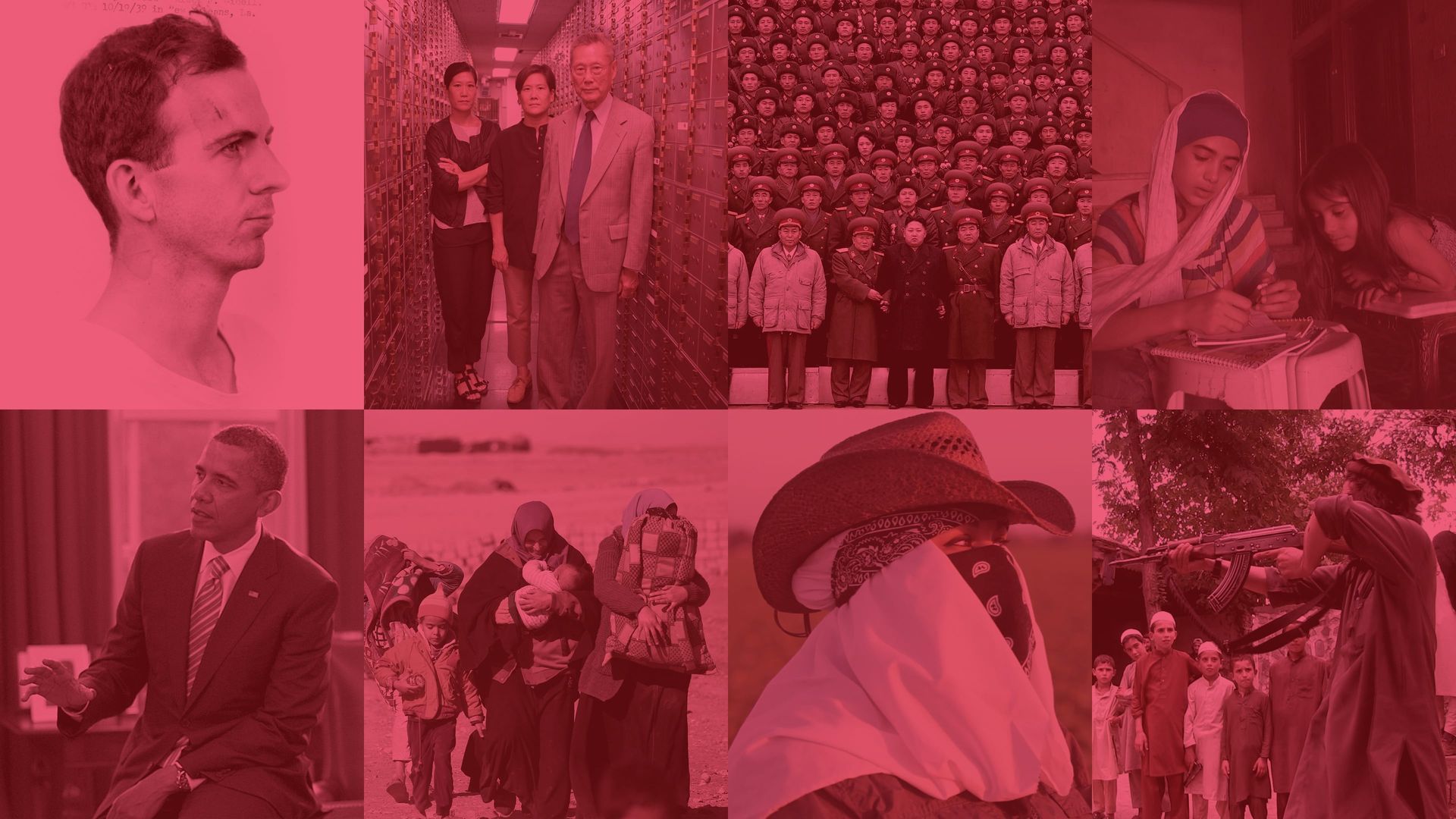

Frontline
Season 20
TV-MA
Since it began in 1983, Frontline has been airing public-affairs documentaries that explore a wide scope of the complex human experience. Frontline's goal is to extend the impact of the documentary beyond its initial broadcast by serving as a catalyst for change.
Where to Watch Season 20
24 Episodes
- Hunting Bin Laden
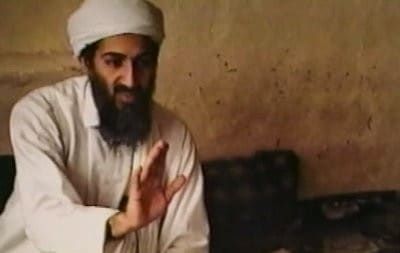 E1
E1Hunting Bin LadenFor years this one man has taunted, threatened and frustrated the United States. But who is he? The U.S. government has tried to link him to nearly every act of Islamic terrorism against Americans in the 90s: from the 1993 attack on the World Trade Center, to the bombings of U.S. military installations in Saudi Arabia, to the 1998 bombings of two US embassies in Africa. [This is a post-9/11 update of an episode that originally aired on 4/13/1999.] - Target AmericaE2
Target AmericaLast month, the nation's top leaders gathered to decide the U.S response to the September 11 terrorist attack. Some of the same individuals were in Washington, DC, twenty-two years ago when the United States suffered its first humiliation at the hands of Islamic militants. U.S. embassy employees were taken hostage and held captive before the world. Over the decades, incident followed incident - the bombing of the U.S. Marine barracks in Beirut, the killing of American soldiers in a Berlin nightclub, the downing of Pan Am 103, and the first attack on the World Trade Center. In "Target America," FRONTLINE uncovers a long-standing division within the nation's security apparatus about how to deal with an enemy that has been targeting America and Americans for decades. - Looking for Answers
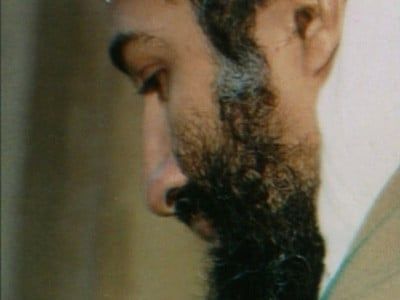 E3
E3Looking for AnswersSunday night, as U.S. bombers and cruise missiles attack targets in Afghanistan, Osama bin Laden released a videotape calling on Muslims worldwide to join his war on America. Next to bin Laden was his close association, an Egyptian named Ayman al-Zawahiri, a man who is certainly as important to the terror network as bin Laden himself. Tonight on FRONTLINE, the full story of these two men, the story of how the seeds of their hatred for America were sown not in Afghanistan but in two of the U.S.'s greatest allies in the Islamic world, Egypt and Saudi Arabia, and the story of how they joined forces to pursue a common enemy. - Dangerous StraitsE4
Dangerous StraitsSince the terrible events of Sept 11th, the United States has worked hard to put together a worldwide coalition against international terrorism. Where will China come down? FRONTLINE and The New York Times explore the tensions between the U.S. and China and the troubles the relationship presents for President Bush, who plans a visit to China in October. The dramatic U.S. spy plane incident off the coast of China in early 2001 reminded us of the dangerous suspicion that exists between the world's most powerful country and its most populous one. China has been supportive of some Islamic states that the U.S. counts as its enemies, and there is also the simmering question of Taiwan. American support for Taiwan means that if it declares independence, the U.S. could be drawn into an international dispute that might lead to war. The Straits of Taiwan have been described by one China expert as "one of the most dangerous places in the world." - Trail of a Terrorist
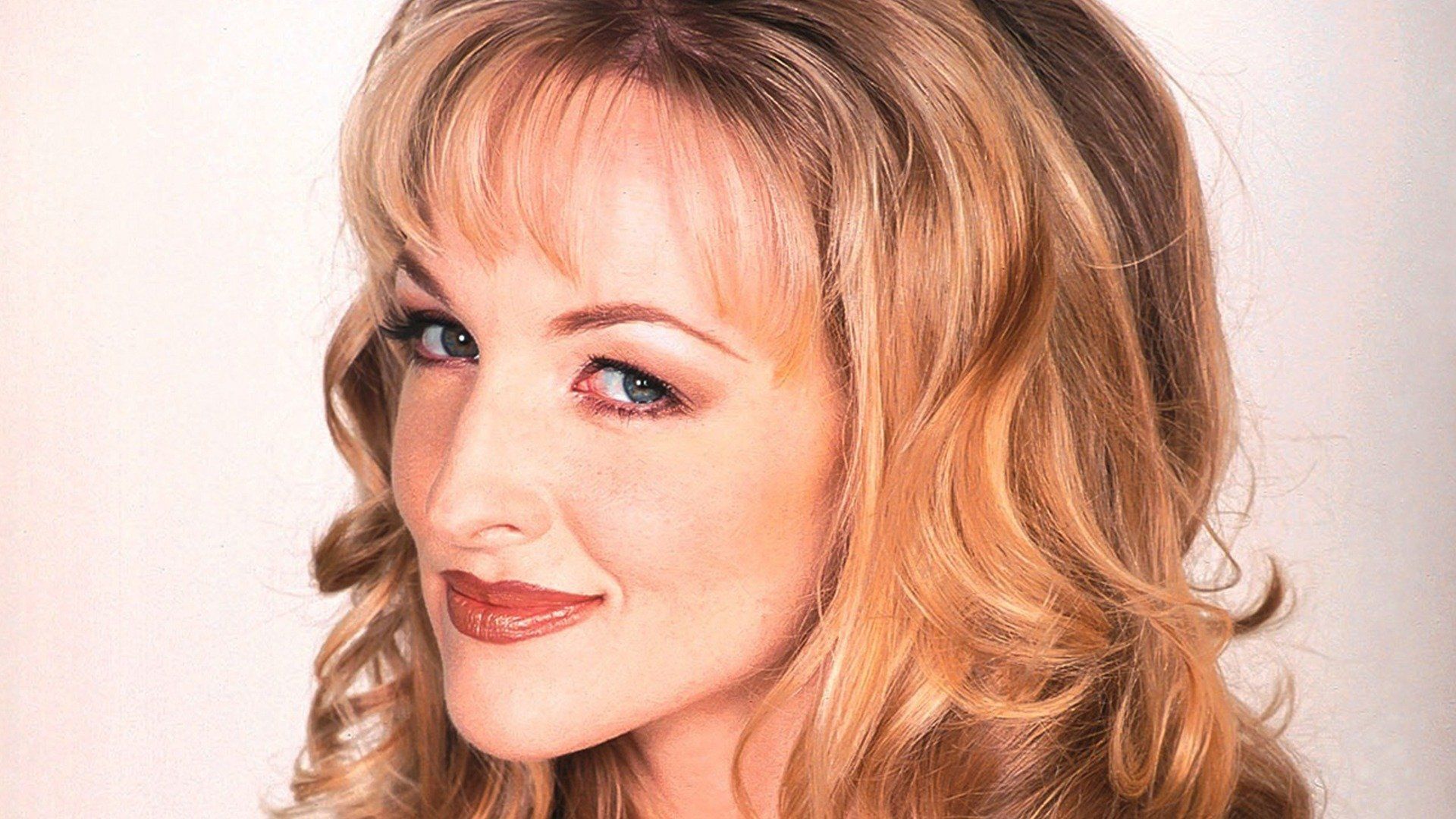 E5
E5Trail of a TerroristOn December 14, 1999, Ahmed Ressam was detained at the U.S./Canadian border when an alert customs agent became suspicious of Ressam's hesitant answers to her questions. When the trunk of his car was opened, agents discovered a powerful bomb and a plot for a millennium attack on America. Ressam said nothing at his trial but, facing 130 years in prison, decided to testify against an accomplice. His chilling testimony reveals his motives, his methods, and his connection to an Algerian terrorist group that had already carried out bombings in Europe. Ressam described his training at the Osama bin Laden camps in Afghanistan, where he became skilled in urban warfare, sabotage, and covert operations. With access to Ressams testimony, police files, and officials in the U.S., Canada, and France, correspondent Terence McKenna follows the trail of a terrorist. - Gunning for SaddamE6
Gunning for SaddamAs Americans are confronted by acts of bioterrorism, powerful forces in the nations capitol believe Iraqi President Saddam Hussein is to blame, for this and many other terrorist acts during the last decade. Many are lobbying to mobilize a military operation to oust Hussein when the next phase of the war on terrorism kicks in. Proponents of the plan, including former Clinton administration CIA director James Woolsey, contend Saddam Hussein was involved in the first World Trade Center bombing, the attempted assassination of President George H.W. Bush in 1993, and the ongoing state sponsorship of terrorist activities. Foes of this plan argue that attacking Saddam will destabilize other nations in the region, most prominently Saudi Arabia, and no doubt destroy the carefully crafted coalition presently hunting for Osama bin Laden in Afghanistan. FRONTLINE investigates Americas other enemy, Saddam Hussein. - Saudi Time Bomb?
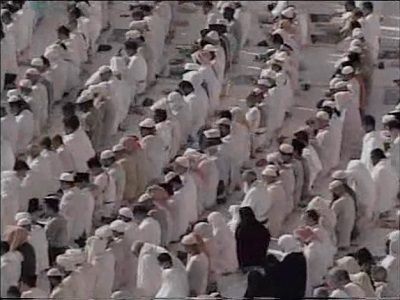 E7
E7Saudi Time Bomb?President Bush says that if the nations of the world are not with us in the war on terrorism then theyre with the terrorists. But what about the United States' supposed ally Saudi Arabia? After September 11th many Saudi citizens reportedly applauded native son Osama bin Laden as a hero. Then the monarchy hesitated to renounce the Taliban and they are still reluctant to allow U.S. warplanes to fly from their bases. Why have Saudi and other Gulf charities sent money to support Islamic fundamentalist schools that are encouraging jihad? And are the Saudis dragging their feet when it comes to assisting U.S. law enforcement agencies that are tracking down terrorists? Whose side are the Saudis on? FRONTLINE and The New York Times explore the fragile alliance with this ultra conservative fundamentalist kingdom upon which the U.S. depends for fifteen percent of the countrys oil needs. - The Monster That Ate HollywoodE8
The Monster That Ate HollywoodThe box office is booming. New international markets are opening weekly. Amazing advances in technology hold the promise of new delivery systems. Yet there's trouble bubbling just below the surface in Hollywood today as movie industry creative types struggle to adapt to new business realities. On the eve of one of the biggest weekends for new movie releases, FRONTLINE explores the changing Hollywood, revealing how once-fiercely independent studio bosses must now answer to the megacorporations that have swallowed the industry whole. - An Ordinary CrimeE9
An Ordinary CrimeIt was a robbery gone wrong, and when it was over, a woman had been shot in the head. Fingerprint evidence identified one of the suspects who quickly named two accomplices: a friend and the friend's cousin, a man he knew only as "Terrance." And that's where the problem with this ordinary crime begins. Police apprehended sixteen-year-old Terence Garner and charged him with the crime. Garner insisted he was innocent. The codefendants said they had never met him. Another man with the name "Terrance" surfaced and confessed to the crime, then recanted and was let go. FRONTLINE investigates a bizarre case of injustice where two men with the same name are implicated in the same crime and one-Terence Garner-is sentenced to thirty two to forty three years in prison. - Inside the Terror NetworkE10
Inside the Terror NetworkThe hijackers of September 11 led such outwardly ordinary lives that they moved through Europe and America virtually unnoticed. They plotted in broad daylight, weaving a web of terror from the simple routines of modern life. American flight schools taught them to fly, local banks helped them move money, libraries provided computers, and the Department of Motor Vehicles supplied essential IDs. Everywhere they went they blended in unnoticed and unsuspected. FRONTLINE traces the hijackers' movements across four continents, following clues they left behind to unearth the stories of the individuals inside Osama bin Laden's terror network. - Dot ConE11
Dot ConIn "Dot Con," award-winning FRONTLINE producer Martin Smith takes an inside look at the precipitous rise and fall of the Internet economy -- and examines the allegations that brokers at some of Wall Street's most prestigious firms manipulated the hot IPO market of the late 1990s. Wall Street, of course, would prefer to forget the past. But investors and investigators want to know: During the headiest days of the Internet bubble, did investment banks and venture capitalists betray the public's trust? Did "irrational exuberance" give way to fraud? - Inside the Teenage BrainE12
Inside the Teenage BrainIt's the mystery of mysteries-especially to parents. Now experts are exploring the recesses of the brain and finding new explanations for why adolescents behave the way they do. FRONTLINE explores how the new discoveries can change the way we parent, teach, or perhaps even understand, our teenagers. - Roll Over: the Hidden History of the SUVE14
Roll Over: the Hidden History of the SUVFrom industrial hauler to America's new station wagon, the SUV has been a spectacular success story, both satisfying and reflecting the tastes of the American consumer. Was the rise of the SUV enabled, even encouraged, by Washington regulators with close ties to the industry? And did they overlook serious safety and environmental flaws in the vehicle that continue to haunt it? FRONTLINE presents an in-depth report of the vehicle that turned Detroit's fortunes around and asks what consumers really know about their SUVs and those charged with making them safe. - Testing Our SchoolsE15
Testing Our SchoolsPresident Bush's proposal for mandatory public school testing in grades three through eight signals the beginning of a new era in public education, one marked by increased federal involvement in schools and an unprecedented expansion in the role of tests. A business school graduate and self-styled "CEO President," Bush envisions a business model where educators set objectives, measure performance, and hold students and teachers accountable for results. But will the business model work in education? FRONTLINE correspondent John Merrow examines how the quest for higher scores is changing teaching and learning in America. - Battle for the Holy Land
 E16
E16Battle for the Holy LandAs Israelis and Palestinians prepare for possible all-out war, FRONTLINE investigates how the combatants pursue the deadly conflict on the ground. How did a war that was once fought with stones evolve into a battle involving suicide bombings and targeted killings? Through exclusive access to Israeli commando units and Palestinian militants, FRONTLINE reveals the tactics and strategies behind the fighting and reports on the latest cycle of violence to unfold in the Holy Land. - Requiem for Frank Lee Smith
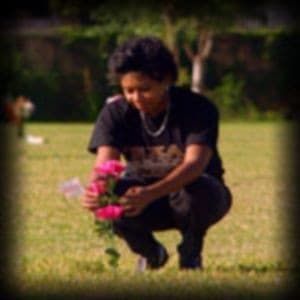 E17
E17Requiem for Frank Lee SmithIn December 2000, after spending fourteen years on Floridaís Death Row, Frank Lee Smith was finally cleared of the rape and murder of eight-year-old Shandra Whitehead. Like nearly 100 prisoners before him, Smithís belated exoneration came as a result of sophisticated DNA testing that was unavailable when he was first convicted. But for Frank Lee Smith, the good news came too late: Ten months before he was proven innocent, Smith died of cancer in his jail cell, just steps away from Floridaís electric chair. How did Frank Lee Smith end up on Death Row for a crime he didnít commit? And why was he allowed to die there despite possible evidence of his innocence? - Modern Meat
 E18
E18Modern MeatA recent study by the Centers for Disease Control found that a single fast-food hamburger contained beef from more than 100 cows. In the last few decades, American meat production has become a highly mechanized and centralized industry, bringing about significant changes not only in the way meat is produced but also in the way Americans eat. These changes have forced the U.S. Department of Agriculture to institute a new meat inspection process, which gives far greater control to the powerful meat industry. This spring, FRONTLINE investigates the modern meat industry and the safety of our current meat supply. - Did Daddy Do It?
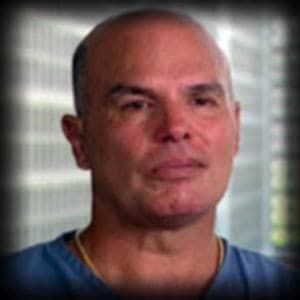 E19
E19Did Daddy Do It?In 1984, Cuban immigrant Frank Fuster was living the American dream. He had a new house in the suburbs, a successful landscaping business, and a new wife who was helping him raise his five-year-old son. Then, Fuster's world fell apart, as he and his wife found themselves charged with sexually abusing numerous children at their Miami day care service. His case was groundbreaking because it helped create the methods by which prosecutors would pursue alleged molesters in other well-known cases around the country. The prosecutor in the case, Janet Reno, became famous and would later serve as the nation's Attorney General. In the l980s, hysteria was in the air and the Fuster case had the usual media frenzy that branded him a monster. Then, when Fuster's wife and son testified against him, he was easily convicted and sentenced to 165 years in prison. Case closed. But was Fuster really guilty of those horrific acts? Now, nearly 20 years later, a FRONTLINE investigation finds new evidence that calls into question the ironclad case against Frank Fuster. - Terror and Tehran
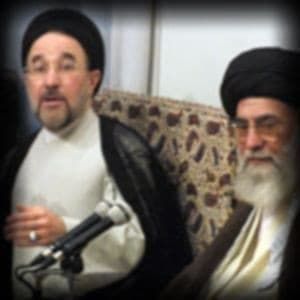 E20
E20Terror and TehranFRONTLINE investigates the terror threat from Iran and the challenges facing U.S. policymakers. President Bush has declared Iran part of an 'axis of evil.' But will U.S. actions against Iran help or hinder Iranian moderates' struggle to reform the hard-line government of Iran? - Muslims
 E21
E21MuslimsMuslims account for one-fifth of the world's population, but most Americans know little about their faith, Islam, which continues to be one of the fastest growing religions in the United States and around the world. What does it mean to be a Muslim today? Does Islam deserve its reputation as a patriarchal, authoritarian, and anti-Western religion? What is the role of Islam in movements for political and social change? FRONTLINE explores these and other questions in "Muslims," a special two-hour film examining the different faces of Islam's worldwide resurgence and the fundamental tenets of the faith. Reporting from Iran, Nigeria, Egypt, Malaysia, Turkey, and the United States, and drawing on the perspectives of leading scholars of Islam, this program tells the stories of Muslims struggling to define how Islam will shape their lives and societies. - The Siege of Bethlehem
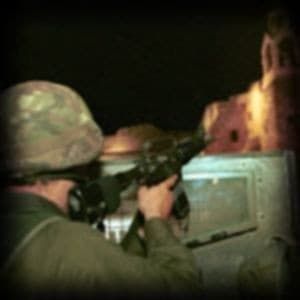 E22
E22The Siege of BethlehemOn April 2, as Israeli tanks rolled into Bethlehem, some 200 Palestinians - many of them armed - stormed into the fabled Church of the Nativity. They remained there for 39 days, as the standoff between Israeli soldiers and Palestinian militants at one of the world's most revered holy sites kept the world transfixed. In "The Seige of Bethlehem," FRONTLINE takes viewers inside the siege at the Church of the Nativity. With unprecedented inside access to key figures on both sides of the standoff, FRONTLINE reveals the secret negotiations, strategies, gambits, and maneuvers employed throughout the siege, as the combatants sought to maintain the delicate balance between diplomatic persuasion and military might. - Bigger Than Enron
 E23
E23Bigger Than EnronIn "Bigger Than Enron," FRONTLINE correspondent Hedrick Smith shines a spotlight on how the corporate watchdogs -- the bankers, lawyers, regulators, politicians, and above all, the accountants -- failed to prevent Enron and other scandals from happening. Through interviews with current and former SEC officials (including SEC Chairman Harvey Pitt and his predecessor, Arthur Levitt), Arthur Andersen executives (including former Andersen CEO Joseph Berardino), members of Congress (including Sen. Joseph Lieberman of Connecticut), investor advocates, and others, the report explores how the system of controls was eroded by conflicts of interest, as well as by congressional intervention that blocked efforts at protecting investors.
